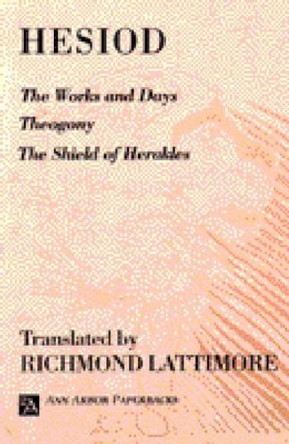Greek poet Hesiod's canonical archaic text, the Works and Days, was performed in its entirety, but was also relentlessly excerpted, quoted, and reapplied. In this volume, Lilah Grace Canevaro situates the poem within these two modes of reading and argues that the text itself, through Hesiod's complex mechanism of rendering elements detachable while tethering them to their context for the purposes of the poem, sustains both treatments. One of the poem's difficulties is that Hesiod gives remarkably little advice on how to negotiate these different modes of reading. Canevaro considers the didactic methods employed by Hesiod from two perspectives: in terms of the gaps he leaves, and of how he challenges his audience to fill them. She argues that Hesiod's reticence is linked to the high value he places on self-sufficiency, which creates a productive tension with the didactic thrust of the poem as teaching always involves a relationship of exchange and, at least up to a point, reliance and trust. Hesiod negotiates this potential contradiction by advocating not blind adherence to his teachings but thinking for oneself and working for one's lesson. Exploring key issues such as gender and genre, and persona and performance, this volume places this important poem within a wider context, revealing how it draws on and contributes to a tradition of usefulness.
About the AuthorLilah Grace Canevaro is Leverhulme Early Career Fellow in Classics at the University of Edinburgh.
ReviewsCanevaro makes an important contribution to the discussion. She provides a thorough commentary on the Works & Days ... The book is both accessible and of interest to the scholar and the general reader. * Penny Whitworth, Classics for All *
Book InformationISBN 9780198729549
Author Lilah Grace CanevaroFormat Hardback
Page Count 284
Imprint Oxford University PressPublisher Oxford University Press
Weight(grams) 476g
Dimensions(mm) 221mm * 141mm * 26mm







